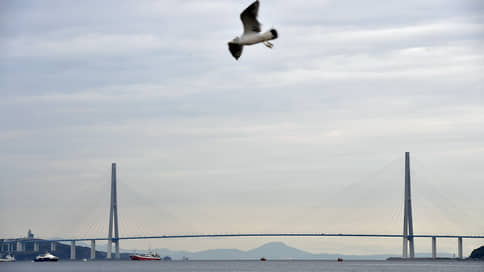Russia was equated to offshore companies – Newspaper Kommersant No. 28 (7473) dated February 15, 2023
[ad_1]

On Tuesday, February 14, the European Union decided to include Russia in the so-called black list of non-cooperating tax jurisdictions with Brussels. This is explained by the failure to fulfill promises to change the regime of “Russian offshores” – special administrative regions in the west and east of the country, and the dialogue between Russia and the EU on tax issues that has stalled against the backdrop of a special operation in Ukraine. Experts warn that while the sanctions partially offset the consequences of blacklisting the country, they will not go unnoticed by Russian businesses due to additional tax costs and increased control over operations.
The European Union on Tuesday updated the list of so-called tax havens, including Russia in the black list – as a jurisdiction that does not cooperate with the EU on tax issues. The same decision was made for the British Virgin Islands, Costa Rica and the Marshall Islands.
To clarify, the list of states with “harmful aspects” in tax regimes consists of two parts. Countries that do not fully comply with international standards, but have promised to correct deficiencies, are included in the so-called gray list (Annex II; now there are 18 countries, including Armenia, Israel, Thailand and Turkey). The black list (Annex I) consists of countries that do not conduct a “constructive dialogue” with the EU. Taking into account the latest update, it includes 16 states (of the “old-timers” – the Bahamas, Panama, Fiji, Samoa). Tougher tax controls apply to blacklisted residents.
Russia has been on the gray list since February 2022 in connection with EU claims to the regime of special administrative districts (SAR) created on the Russian (Vladivostok) and Oktyabrsky (Kaliningrad region) islands. These “Russian offshores”, we recall, were formed to return capital to Russian jurisdiction and to protect them from sanctions.
The EU insisted that this regime should be available not only for foreign, but also for Russian holdings, and also believed that real, not nominal, offices of companies should be created in the SAR.
Russia was supposed to adopt the necessary changes before the end of 2022, and this was done on time. In a limited regime, the “relocation” of Russian companies to the SAR was allowed and the requirements for their actual presence were tightened (see “Kommersant” dated February 17, 2022).
However, as follows from the message of the Council of Europe, after analyzing the changes, Brussels came to the conclusion that Moscow had not fulfilled its obligations. The “transfer” to the black list is also explained by the fact that the dialogue with Russia on tax legislation “has reached a dead end” against the backdrop of the situation in Ukraine. Recall that earlier cooperation with Russia through the Financial Action Task Force on Money Laundering (FATF) has already been limited. In particular, Moscow can no longer take part in setting the group’s standards, making management decisions and conducting peer review.
The Ministry of Finance of the Russian Federation recalled the changes made to the ATS regime and said that this “information was brought to the attention of the EU”, however, since March 2022, “all contacts with the EU in the tax field have been suspended indefinitely” – the decision to include the Russian Federation in the black list was taken without consultation with the Russian side.
“The reasons for making such a decision are unknown to us,” they add in the department and note that the process of “improving Russian tax legislation will continue.”
As international taxation expert Rustam Vakhitov explains, apparently, the changes adopted by the Russian Federation in relation to the ATS were not enough, since even in the October version of the gray list Russia remained on it. Kept partner Alexander Tokarev suggests that the key points were the lack of dialogue between the relevant authorities of the Russian Federation and the EU, “as well as the current circumstances.” According to him, earlier countries could be on the gray list for years, gradually adapting their tax regimes to EU requirements. Russia, on the other hand, “expressly” moved to black, despite the fact that the requirements of the EU regarding the SAR were largely taken into account.
Anna Modyanova, director of the tax practice at Technology of Trust, believes that, given the importance of the CAP regime “as the main way to bring business to Russia from unfriendly countries, as well as the EU’s unwillingness to further dialogue on the issue of delisting a country, Russia can remain on it at least in the medium term.”
According to her, Russia’s blacklisting means that Russian businesses that have retained EU companies in their ownership and operations structure “will inevitably face additional tax costs and restrictions, as well as increased controls, including additional checks.”
Alexander Tokarev adds that Russian businesses will not be able to claim a number of tax benefits when receiving income from EU countries (for example, in Cyprus, which is still used as an intermediate company in international holdings for the sake of a zero dividend rate; now dividends and interest paid in favor of Russian companies will be subject to withholding tax). European companies will in some cases not be able to apply exemptions on income received from Russia and will face restrictions on the deductibility of expenses paid to Russian companies. “On the one hand, the reduction in the activity of ties with Europe against the backdrop of sanctions mitigates the consequences of including Russia on the black list, but it is hardly possible to say that they will go unnoticed,” says Alexander Tokarev. In addition, warns Rustam Vakhitov, individual countries also use the blacklist to apply national restrictive measures.
[ad_2]
Source link






